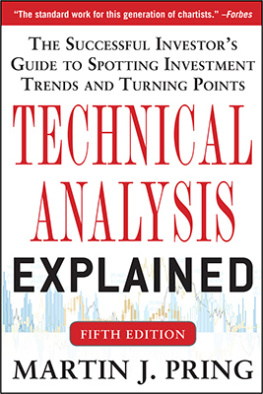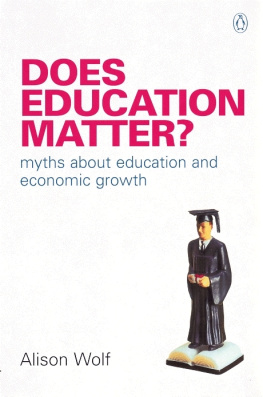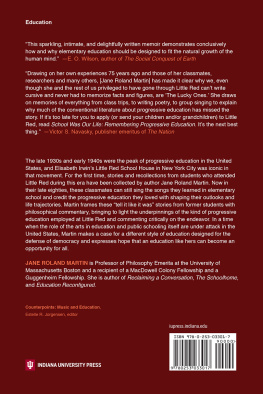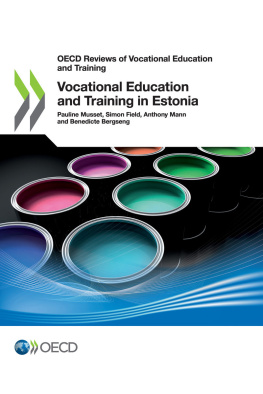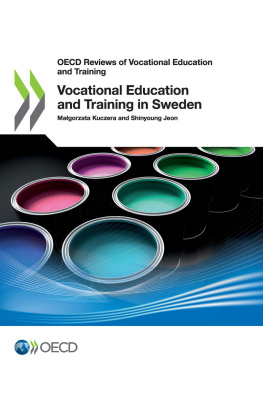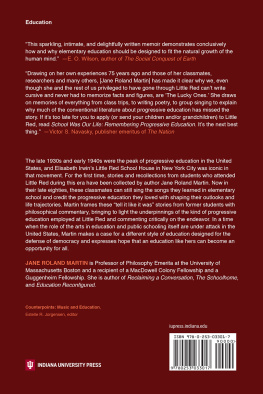First published 2016
by Routledge
2 Park Square, Milton Park, Abingdon, Oxon OX14 4RN
and by Routledge
711 Third Avenue, New York, NY 10017
Routledge is an imprint of the Taylor & Francis Group, an informa business
2016 Richard Pring and Martin Roberts
The rights of Richard Pring and Martin Roberts to be identified as the authors of the editorial material, and of the authors for their individual chapters, has been asserted in accordance with sections 77 and 78 of the Copyright, Designs and Patents Act 1988.
All rights reserved. No part of this book may be reprinted or reproduced or utilised in any form or by any electronic, mechanical, or other means, now known or hereafter invented, including photocopying and recording, or in any information storage or retrieval system, without permission in writing from the publishers.
Trademark notice: Product or corporate names may be trademarks or registered trademarks, and are used only for identification and explanation without intent to infringe.
British Library Cataloguing in Publication Data
A catalogue record for this book is available from the British Library
Library of Congress Cataloging in Publication Data
Names: Pring, Richard. | Roberts, Martin, 1941
Title: A generation of educational change: stories from the field/edited by
Richard Pring and Martin Roberts.
Description: Abingdon, Oxon; New York, NY: Routledge is an imprint of
the Taylor & Francis Group, an Informa business, [2016] | Includes
bibliographical references and index.
Identifiers: LCCN 2015019499| ISBN 9781138941892 (hardback) |
ISBN 9781138941915 (pbk.) | ISBN 9781315673417 (e-book)
Subjects: LCSH: Education and state Great Britain History 20th century.
| Education and state Great Britain History 21st century. | Educational
change Great Britain History 20th century. | Educational change
Great Britain History 21st century.
Classification: LCC LC93.G7 G46 2016 | DDC 379.41 dc23LC record
available at http://lccn.loc.gov/2015019499
ISBN: 978-1-138-94189-2 (hbk)
ISBN: 978-1-138-94191-5 (pbk)
ISBN: 978-1-315-67341-7 (ebk)
Typeset in Bembo and Stone Sans
by Florence Production Ltd, Stoodleigh, Devon, UK

Baroness Estelle Morris
Many people teaching today will have witnessed the present education revolution since its start; others will have joined along the way. The careers of longer serving teachers frame the years of this period of change in schools. They will have qualified before the days of the national curriculum, national testing and inspection, and will be able to remember when local authorities, not central government, were at the centre of what happened.
They are the generation who have seen the changes at first hand, but, if change is to be an ally and not a threat, all of us need to understand its context and the journey we are travelling.
The contributors to this book have played key roles at important times in different parts of the education service. Some have been champions of change, others would have preferred a different route, all have had to try to make the changes work. In this sense, these chapters set out the often conflicting views and opinions that have been the background of education policy and practice for three decades and in doing so they come together to build a narrative of the times.
Anyone looking back at this period could describe it as a time of upheaval. School and college structures, curricula, inspection frameworks, qualifications have all been introduced, amended, and often discarded before there has even been time to properly assess their impact. Sometimes the reasons for change have been badly explained; often the initiatives have seemed relentless.
Yet there have been strong strands of continuity as well. The principles of greater autonomy, a national framework offering an entitlement for all young people, the need for teachers to be held to account, the importance of school and college leadership and the impact of high quality teaching have been threads that have stood the test of time.
Education doesnt exist in isolation, and the pressures for change come as much from outside the system as within. It is no coincidence that a period of great change in education has been also a time of significant change in the wider society.
Greater demands on services, less tolerance of failure, the belief that everyone must succeed and the freedom to exercise choice, all characterise the present public attitude to key services and these too have been some of the pressures for change.
Equally, the speed of development in communication and the opportunities offered by digital technology have transformed our understanding of how children learn, and schools must reflect this if they are to remain relevant to those they teach.
Education has at times led change the achievement of ethnic minorities, for example yet in other areas it has been slow to change. Schools embraced educational technology long after most other sectors and they are only just beginning to give it the importance it deserves.
These are not easy times for those who teach but, at its core, education remains the greatest route to freedom, self-respect, fulfilment and social justice. It will always attract the attention of others who share the ambition to change the world for the better and, as a result, it cannot and must not stand still.
Although change will be an ever-present force for those who work in education, we must get better at how we lead it, manage it, evaluate it and take others on the journey. This book is not only a testament to the past but a most valuable source of wisdom for the future. We should all learn from it.
Editors note: Virtually all the text of this book was written in the months before the General Election of May 2015. We have left it unchanged since, in the few months since then, the Conservative government, which replaced the Coalition, has left the main thrust of educational policy-making unchanged, as exemplified by its drive against coasting schools and its continuing pressure on schools to become academies.
Part V
Reflection on policy matters
Adonis, A.
Ainscow, M.
Alexander, R.
Alexander, W.
Allen, G.
Baker, K.
Ball, S.
Balls, Ed
Bangs, J.
Barber, M.
Beales, A.C.
Beaumont
Bell, D.
Bernstein, B.
Bhaskar. R.
Blair, T.
Blunkett, D.
Booth, T.
Boyle, Edward
Brighouse, Tim
Brock, M.
Cable, V.
Callaghan, James
Coleridge
Dearing
Dewey, J.
Dweck, C.
Eaude, T.
Friedman
Fullan, M.
Gardner H.
Gillborne, D. ,
Glass, N.
Gove, M.
Gramsci
Green, A.
Greer, G.
Hargreaves, A
Hargreaves, D.
Hayek, F.
Hirst, P.
Jones, K.
Joseph, Keith
Judge, H.
Kennedy, H.
Kerpel, A.
Letwin, O.
Major, J.
Mercer, N.
Mill, J.S.
Morrell, D.
Morris, E.
Newman, J.H.
Newsom, J.
Newton, P.
Nias, J.
Oates, T.
OHear, A.
Perry, P.
Peters, R.S.
Piaget
Plato
Pugh, G.
Riddell, P.
Rose, J.
Rutter, M.
Sahlgren, G.H.
Shulman, L.
Simon, B.
Stenhouse, L.
Sylva, K.
Taylor, C.
Thatcher, M.
Tickell, C.
Tomlinson, M.
Tomlinson, S.



